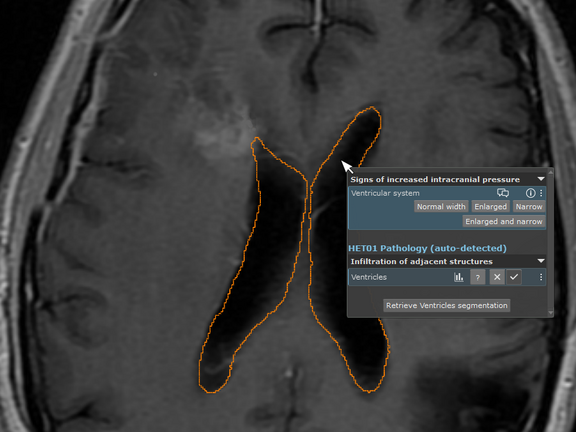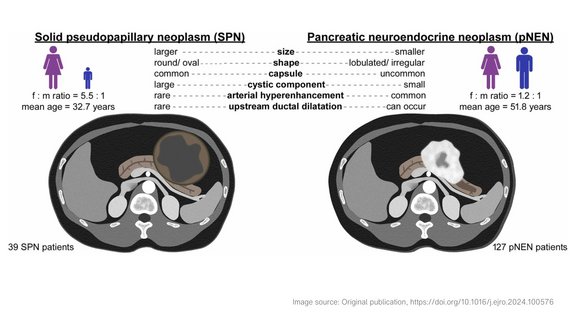More automation within mint Lesion™? Automated context-dependent template selection, filtering of relevant questions or even fully automated organ and lesion volume segmentation? Those features are all closer than ever.
Last March, Mint Medical was acquired by Brainlab, a leader in image-guided surgery and radiotherapy. Brainlab planning and intra-operative applications have long been powered by its Anatomic Patient Model – a multi-modal, biomechanical, AI- and Atlas-based simulation of an individual patient’s anatomy.
We now have connected the Anatomic Patient Model (APM) to mint Lesion™. The APM was made available through the Brainlab subsidy Snke OS, which set out to build an open health-tech platform around the Brainlab core technology frameworks.
One of our first prototypic use cases is image/structure-aware filtering of questions/templates: By clicking on an anatomic structure inside the viewer, mint Lesion™ automatically detects the structure within the slice set and suggests the relevant questions. Another use case is the automated detection and full segmentation of cranial lesions, for effortless volumetric tumor monitoring applications. However, this is just a teaser of the functionalities that will be bound to come.
If you are curious and would like to try our first steps to automate mint Lesion™ with the Anatomic Patient Model, discuss the use cases you would like to see, or even want to leverage the APM in your own software application, visit us at one of our booths at the RSNA.

„Anatomical GPS“ for mint Lesion™: Leveraging the Snke OS/Brainlab Anatomic Patient Model to drive anatomic-context-awareness and automation within mint Lesion™
Related Resources
Related Resources

A Closer Look at the BZKF BORN-Project: Interview with Dr. Maurice Heimer from the Clinic and Polyclinic for Radiology at the LMU Klinikum
The Bavaria-wide Oncological Radiology Network (BORN) is now in its second funding phase and is making rapid progress. The project was initiated in…

Key Imaging Features for Differentiating Rare Pancreatic Tumors
Solid pseudopapillary neoplasms (SPN), also known as Frantz tumors, are rare tumors of the pancreas. Due to overlapping features of SPN and pancreatic…

Heidelberg University Hospital: Key Imaging Features to Distinguish Solid Pseudopapillary Neoplasms from Pancreatic Neuroendocrine Neoplasms
Solid pseudopapillary neoplasms (SPNs), or Frantz tumors, are rare pancreatic tumors accounting for 2-3% of all pancreatic neoplasms. These tumors…